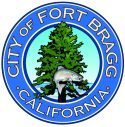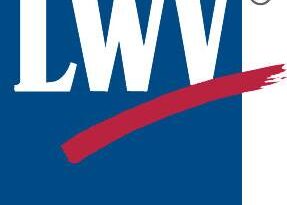City strikes business license requirement for landlords with less than 4 rental units!
Landlords are collecting revenue, so they are running a business.
On May 2016, while attending a City Community Development meeting, the question as to whether I, as a landlord was required to purchase a City of Fort Bragg Business License. I was informed by Councilman Dave Turner and Community Development Director Marie Jones that I indeed needed to purchase a business license. I marched right down to City Hall where I purchased a business license. That license cost over one hundred dollars and was based on gross revenues, rather than net. In 2017 I was charged less than a hundred dollars and this year it was $114. Citing that I received absolutely no services for this tax, I took my complaint it to the City Council.
In December 2016, after Counselors Peters, Norvell and Lee were seated on the City Council, I complained again about being forced to purchase a business license for renting 2 little houses on one piece of property
City Staff did some research and found that few landlords were paying this license fee. Many cities had exemptions for people like me, so City Staff said they were going to do more research and bring it back to the City Council. Mayor Peters, at my urging, followed up with staff several times that year to no avail. When I saw the fee schedule back on the agenda in December 2018, I addressed the Council again. Now, more than two years after I initially raised the issue, I appreciate my concerns have finally been taken seriously.
Apparently the business license fee has attracted a great deal of attention, particularly by commercial property owners. Those people think, if they are required to pay for a Business License on their rental income and the business tenant is paying for their business license, this amounts to “double taxation”, especially if they have their own holding company leasing their building back to the business. So, commercial property owners also want to be exempt from paying for a business license, regardless of their income and size of holdings.
It appears that the City has not been enforcing the business license regulations to commercial and corporate landlords just as they haven’t implementing the license requirements on landlords of housing rental units. The new regulation on the meeting’s agenda , exempting landlords with less than 4 units, is designed to remove housing barriers, especially given the City is promoting “granny units” to provide affordable housing. This support includes providing free architectural plans and reduced building/permit fees, although I do not think people were being informed of the requirement to pay the business license at meetings encouraging second units.
While much of the written public comment on this item actually pertained to a different agenda item, the commercial, taxable rental income issue was pushed into the residential issue.
As pointed out by Tess Albin-Smith, before the City dumps business license fees on landlord income, research needs to be done.
Issues to look at include:
- What are the numbers:
- How many rentals will be impacted?
- How many landlords are currently paying their business licenses?
- What is the actual value of Fort Bragg rental income.
- What is the potential income for the city if landlords were paying their business license fee at .01% on a lot of rental and lease income?
- Will this have a significant budget impact?
I think the Council needs to proceed carefully before they abandon the Business License Fees for landlords who have 4 and more rentals inside the city limits. Because a business tenant and a commercial building owner are paying taxes on their individual revenue streams, I think the double taxation argument is invalid.
I do think a legitimate argument is that the portion of the Business License Fee on commercial real estate based on gross receipts might better serve the community if it were on its net income. While research still needs to be done, it might encourage property owners to make repairs and building improvements.
Being a landlord is a business in and of itself, separate from whatever activities are pursued in the rental units, commercial or residential, that the landlord derives revenue from. For some, their complete business is managing their personal rental property.
The Council did vote 5-0 to pass the ordinance which relieves landlords of requiring a business license for those owning 3 or fewer units. While both Bernie Norvell and Jessica Morsell-Haye voted in favor of the motion, initially both of them indicated they would need to recuse themselves because they might financially benefit from this action.
Perhaps, they thought,with the qualification that this ordinance applies only to 3 units or less, they would not financially benefit from this action?




